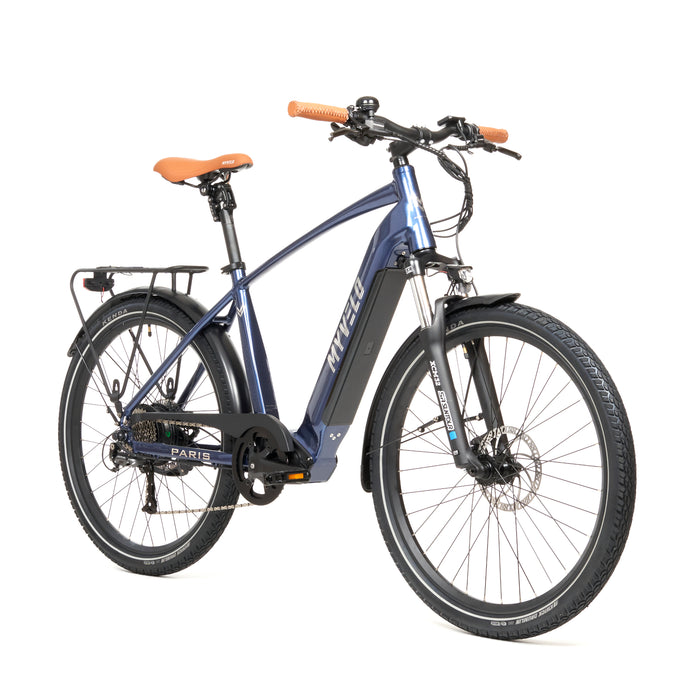
Paris E-Bike Trekking
incl. FREE shipping & free returns

Stress has long since become a widespread problem – constant work pressure, personal obligations, and constant availability lead many people to feel overwhelmed. But there's an easy way to clear your head: cycling. Whether leisurely through the park or a sporty ride on a racing bike – the bike acts as a natural outlet for stress. This article explains why.
Von Isatou Schulz |
3 minutes read time

When we feel stressed, our bodies produce increased amounts of cortisol, the so-called stress hormone. Exercise—especially endurance sports like cycling— can help lower cortisol levels. A study from the University of Colorado Boulder showed that regular cycling in rats not only promotes neuroplasticity in the brain but also counteracts stress-related behavioral changes (Greenwood et al., 2011).
Stress not only leaves psychological scars, but can also affect physical health. Elevated levels of cortisol, the so-called stress hormone, can lead to a variety of problems, including sleep disturbances, muscle tension, and digestive issues. Regular physical activity such as cycling can help lower cortisol levels and make the body more resilient to stress overall.

Serotonin is known as the "happiness hormone" — and it's precisely this hormone that's released in greater quantities during cycling. Especially during longer rides at moderate intensity, endorphins and serotonin are released, which have a positive effect on mood. This is also supported by studies from Harvard Medical School , which confirm that regular endurance exercise can significantly reduce symptoms of depression (Harvard Health Publishing, 2021).
Cycling outdoors helps focus on nature and your surroundings. The view of green meadows, forests, or the horizon has a calming effect. Instead of staying indoors or behind a screen, you connect with your surroundings, which significantly reduces stress levels.
Cycling outdoors benefits twice over. Nature experiences have been proven to have a calming effect on the psyche and nervous system. According to a study by the University of Essex, just five minutes of physical activity in nature is enough to significantly improve mental well-being (Barton & Pretty, 2010). This means that even a short bike ride in the countryside can help reduce stress.
Many people report entering a kind of meditative state while cycling – comparable to a "flow experience." You focus on the rhythm of your pedal strokes, the breeze, and your surroundings. In this state, thoughts become calmer, and problems fade into the background. Mindfulness studies show that such regular mindful activities lead to greater emotional resilience .
Stress negatively impacts sleep — and poor sleep, in turn, increases stress levels. However, a positive cycle is created by cycling regularly. The Stanford University School of Medicine found that just 20–30 minutes of cycling per day can help reduce sleeplessness by up to 50%.
Those who cycle regularly experience a sense of control and self-determination—both important factors in dealing with stress. Even short rides to work or during leisure time can strengthen the sense of self-efficacy — that is, the feeling of being able to overcome challenges on your own.

Regular cycling can help increase personal resilience. This means you're better able to cope with stressful situations and recover more quickly from stressful experiences. During a long ride, whether through the forest or along a river, the body learns to process stress and regain balance. This ability to recover can also be beneficial in everyday life when challenges or stressful situations arise.
Whether for work, leisure, or as a sporting hobby – cycling is more than just transportation. It acts as a natural stress reliever, harmonizes body and mind, and helps you distance yourself from everyday life. Those who pedal regularly are doing something good not only for their physical health but also for their mental balance.